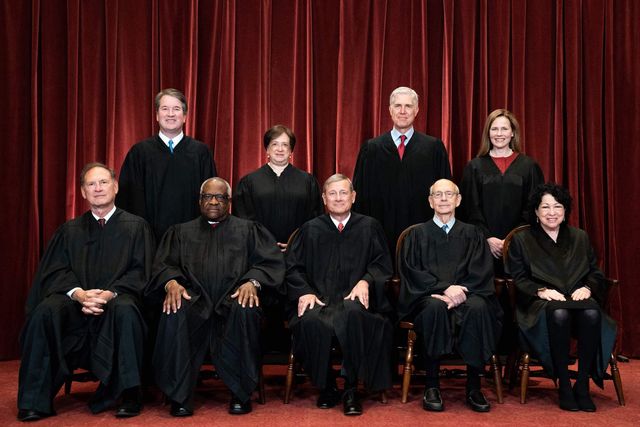BREAKING: U.S. Supreme Court Strikes Down CDC Eviction Moratorium
6-3 Ruling Puts End to Nationwide Residential Eviction Moratorium
In a late night “shadow docket” ruling, the U.S. Supreme Court’s conservative majority struck down the controversial nationwide CDC Eviction Moratorium which paused virtually all residential evictions in the country through October 3. The eviction moratorium, first put in place by the Trump administration in July 2020, expired at the end of July 2021. Previously, Justice Kavanaugh indicated that the Court would strike it down, but allowed it to expire on July 31. But with increasing Covid rates over the summer, the Biden administration’s Centers for Disease Control put a new moratorium in place tied to county Covid-19 transmission rates.
The challenger in the lawsuit, the Alabama Association of Realtors, petitioned the Supreme Court for the very rare immediate expedited review. The Court’s majority granted review, and found that the CDC’s limited public health statutory authority was not broad enough to shut down all evictions across the country, ruling that “the CDC has imposed a nationwide moratorium on evictions in reliance on a decades-old statute that authorizes it to implement measures like fumigation and pest extermination. It strains credulity to believe that this statute grants the CDC the sweeping authority that it asserts.”
Unless Congress passes legislation providing for eviction protections (which it unsuccessfully tried to pass earlier in the summer), the Supreme Court’s ruling clears the way for hundreds of thousands of evictions to resume across in the country. Looming overhead also are billions of rental aid funds which have yet to be distributed by federal agencies and state governments. This was noted by the Court’s three liberal dissenting justices, along with the Delta variant surge.
Here in Massachusetts, the Legislature previously enacted a quasi eviction moratorium which pauses all evictions where a tenant has applied for rental aid. Thus, the Supreme Court’s ruling may not have as much of an effect here in the Bay State as other parts of the country. However, we will likely see more move-out orders issued by the Housing Court for cases not involving rental aid applications or where landlords have rejected rental aid funding.
On a personal note, I feel quite vindicated right now. As most of you know, I was one of the first attorneys in the country (along with my co-counsel Jordana Greenman) to challenge an eviction moratorium in federal court. We made many of the same arguments as presented to SCOTUS. However, on the flip side, the federal and state governments have done a disastrous job in distributing the billions of available rental aid funds to tenants and landlords. I think we have done it right here in Massachusetts with Chapter 257 and its pause on evictions where a RAFT application is pending. Congress should pass similar legislation to prevent unnecessary evictions and displacements while ensuring that appropriated rental aid funds get into the hands of property owners and tenants. If Congress doesn’t act, then we will definitely see more displacements which is not what we want during the Delta surge. (This is coming from a pro-landlord attorney).

